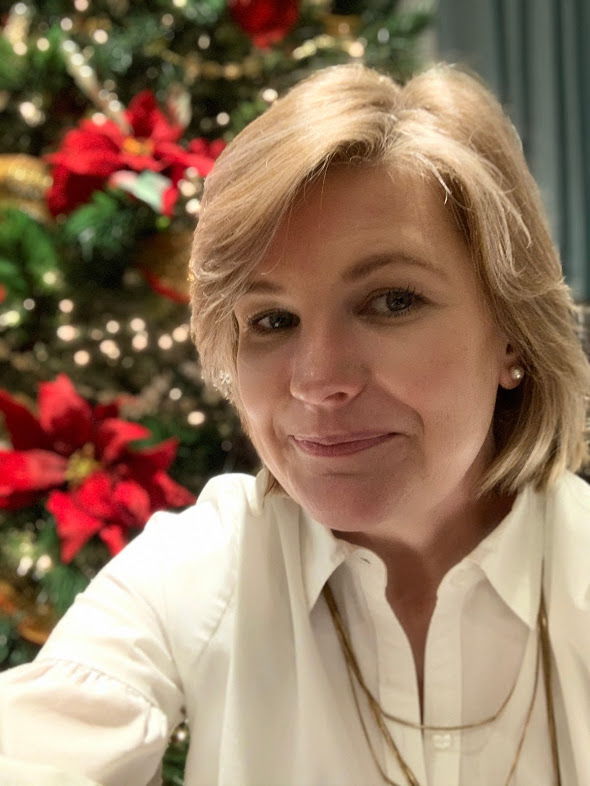After seven years operating the Seminary Teachers of The Church of Jesus Christ of Latter-day Saints Facebook group, I've seen it all. Too many of us are giving answers about race and priesthood intended to preserve faith that do not convey the truth, the whole truth, and nothing but the truth sohelpmegod. We know lot more information today about the origins of the priesthood and temple ban that we did in years past. "We don't know" is no longer an acceptable response. Here are some crawfishing and false responses you should avoid when teaching about race and priesthood:
Contents - What NOT to say during a gospel lesson on Race and Priesthood
What not to say in a gospel lesson on race
Don't say things like "we don't know why Brigham Young did what he did".
Although this language may be found in the Seminary manual and other places, it does not reflect current understanding. Here's what some people have said:
The "We don't know why" language was the Church's position before they commissioned the study that resulted in the Gospel Topics essay -- a statement approved directly by the First Presidency and Council of the Twelve (not in the sense that we usually state that they oversee lesson materials in general, but literally, directly, personally approved). The old habit of saying "We don't know why" is a hard one to break, or at least a more comfortable one to hold onto; it persists in the minds of individuals, and apparently in materials that have not been updated. But since we DO know now far more than we knew even ten years ago, due to the in-depth research and study of historians and the line-by-line discussion and approval of that essay through so many layers of Church leadership, the "We don't know why" language should be left behind.
I might add that the Orson Pratt story included in Saints was unavailable until recently: The minutes existed only in virtually unreadable Pittman shorthand until they were found and transcribed as part of the process of researching and writing "Race and the Priesthood." That's a good, concrete example of how we know more now than anyone knew ten years ago, and illustrates the progress from "We don't know why" to "We now understand better than before." - Ardis Parshall
The Church may not have given clear reasons as an organization, But Brigham and others were especially outspoken on the "whys" behind it. I don't say that to stir things up, but there's a lot of things in the Church that I think are our leader's best interpretations of scripture and doctrine based on the light they have.
There's no reason to say "We don't know why they did X" when the person who did X was very explicit about his whys. We can let President Brigham own those actions instead of trying to find a more palatable way of saying "The ways of God are mysterious." - Matthew Jelilian
I agree, Matthew. With regard to "the whys," this is what the Church currently says about those "whys", including the one that Brigham used: "Today, the Church disavows the theories advanced in the past that black skin is a sign of divine disfavor or curse, or that it reflects unrighteous actions in a premortal life; that mixed-race marriages are a sin; or that blacks or people of any other race or ethnicity are inferior in any way to anyone else. Church leaders today unequivocally condemn all racism, past and present, in any form." - Melissa Inouye
Additional Reading on Brigham's reasoning, in his own words
Visit these sources for the transcriptions of Brigham Young's words to the Utah Territorial Legislature describing why he made the choices he did:
- https://archive.org/details/cr100317b0001f0014brighamyoung1852january23original - Brigham Young, Speech Before the Utah Territorial Legislature, Jan. 23, 1852
- https://archive.org/details/CR100317B0001F0017 - Brigham Young Address to Legislature - Feb 5, 1852
Don't say that the priesthood ban can be explained or excused because the culture of the time was racist.
This reasoning is weak, because The Book of Mormon was published in 1830 containing the words: "he inviteth them all to come unto him and partake of his goodness; and he denieth none that come unto him, black and white, bond and free, male and female; and he remembereth the heathen; and all are alike unto God"1.
In addition, in 1852 member of the Quorum of the Twelve Apostles Orson Pratt disagreed with Brigham Young's position and argued in favor of rights for blacks in the Utah Territorial Legislature. 2
In the 1860s, differing ideas on racism and slavery were at such a fever pitch that the United States entered into a Civil War as a result. While it is true that some people advocated slavery and believed that people of color were inferior or should be excluded from religious rites and full citizenship, this was not Mormon scriptural teaching, Brigham knew there were alternate viewpoints among prominent priesthood leaders, and Brigham knew Blacks had received priesthood ordination from Joseph Smith and served with distinction3.
Don't speculate or repeat old, outdated, disavowed reasons for the temple and priesthood ban.
Disavowed reasons and racist ideas include blacks are cursed descendants of Cain, some people don't deserve priesthood because of their parentage, blacks were less valiant in the pre-earth life, or mixed marriage is a sin. Read the Race and the Priesthood essay for the LDS church's current stance on race.
Don't teach that the priesthood ban was necessary or correct or inspired for its time.
Another speculative statement you should avoid is that the temple and priesthood ban was inspired or correct for its time. We don't have any information that indicates a revelation was received to change Joseph Smith's policies of racial inclusion. We do know that some prominent church and civic leaders, like Orson Pratt, disagreed with the policy. We also know that Black people thought it was incorrect and changeable, because they sought temple and priesthood blessings by appealing to the first presidency on numerous occasions4.
From FAIR's interview with Paul Reeve, author of the Race and Priesthood essay: is it reasonable to say the priesthood ban actually preserved the young church during difficult racial times?
I’ve heard that argument before. If you are going to argue that the priesthood ban preserves the Church, then why polygamy? They certainly came under scorn for polygamy. The priesthood ban sort of made them like the rest of white America. Polygamy brought all kinds of scorn upon them5. - Paul Reeve
When teaching, try to remain neutral on Brigham's "rightness" or "wrongness" in instituting the policies he chose regarding race.
More information is still forthcoming, and for whatever reasons, the church has not made a statement disavowing or condemning Brigham Young. I think most of us have an opinion on the subject, but it's important to let students sit with their opinions on this matter, even if it doesn't match yours. Here's what one historian says:
Saints does not say "Brigham clearly was mistaken in the ban," although this is clearly a position that people can take, though not the only position that people can take. It says, "Brigham invoked the mistaken theory that Black people carried the curse of Cain." Here's the full Gospel Topics Essay. - Melissa Inouye
What we definitely don't know
While we do know Brigham's reasoning for restricting people of color from the priesthood and full civic rights, we definitely don't know why God allowed the ban to continue or why so many inspired, good leaders were unwilling to change. Think about how you will help students work through these challenging issues. Here are some questions you might ask:
1. Was the restriction initiated by God?
2. Was the restriction maintained by God?
3. How was the restriction ended? Why?
Russell Stevenson has written a great blog post about how to address Official Declaration 2 during class. The article is full of encouragement on how to confidently address this difficult topic, especially with a classroom of adults or higher level questioning youth. Russell has written a lesson plan for Official Declaration 2 based on his expertise as a historian focusing on race issues that can help you prepare your lessons.
Be aware that you may be dealing with some issues related to prophetic inerrancy with your students
There are a good number of LDS who hold to quasi-inerrant views about revelation and prophets, who can't reconcile the idea of an uninspired priesthood/temple ban with Gospel truths. They tend to see the GT essay as "throwing Brigham under the bus" or being written by "liberals" who "don't really believe." The first option leaves them some wiggle room. However, I think as time goes by (and with more work done in various areas, including mine e.g. the FAIR Conference this summer), we'll see more and more people become comfortable with understanding how that happened, why it was allowed to happen, etc., without it being perceived as a threat to faith. The closer you are to holding inerrant assumptions about the nature of revelation and prophets, the greater the perceived theological threat of an uninspired priesthood/temple ban. - Ben Spackman
If you are helping a student deal with issues regarding inerrancy or infalliability, look at these resources:
- https://www.fairlatterdaysaints.org/conference/august-2017/truth-scripture-and-interpretation - Truth, Scripture, and Interpretation: Some Precursors to Reading Genesis, Ben Spackman
- https://benspackman.com/2020/01/22/inerrancy-among-si-about-church-materials/ - Inerrancy Among SI About Church Materials and https://benspackman.com/2020/01/31/inerrancy-a-followup/ - Inerrancy, A Follow-Up, Ben Spackman
- https://mormonhistoryguy.com/2018/08/26/breaking-mirror-note-prophetic-fallibility/ - Breaking the Mirror: Notes on Prophetic Fallibility, Russell Stevenson
- 2 Nephi 26:33
- Terryl Givens on Faith Matters podcast: "We know that Orson Pratt is advocating for black male voting rights in 1852. So, that’s an important new piece of historical information to understand why Brigham Young says some of the things he says in his 5th of February speech. On the 5th of February … I imagine on the 4th of February even though Orson Pratt’s speech isn’t recorded, Orson Pratt is saying, no other prophet ever said this before. Brigham Young on a fifth of February, “If no other prophet ever said it before, I say it now, black people cannot hold a priesthood because of the curse of Cain,” is what he says.
"He also says, 'Black people cannot rule over me and use our territory, meaning we will not give them the right to vote and most horrifically we just as well give mules the right to vote as people of black African descent or Native Americans.' That’s Brigham Young at his racist worst but remember he’s responding to Orson Pratt. He was advocating for black voting rights and so he’s saying, “They won’t rule over me in this territory. They won’t have the right to vote and they won’t rule over me in this church, meaning they won’t have the priesthood.” Those two things are really animating the debate.
"At the end of that speech, like I said, he also says, “I acknowledged that other people will disagree with me and they’ll say I’m not right but I know I’m right.” I’m only citing that to say he’s not saying thus saith of the Lord."
https://faithmatters.org/the-real-story-of-the-priesthood-temple-ban-terryl-givens-with-paul-reeve/
- See http://www.blacklatterdaysaints.org/abel and https://www.churchofjesuschrist.org/study/history/topics/elijah-able?lang=eng about Elijah Able / Ables
- "Even after 1852, at least two black Latter-day Saints continued to hold the priesthood. When one of these men, Elijah Abel, petitioned to receive his temple endowment in 1879, his request was denied. Jane Manning James, a faithful black member who crossed the plains and lived in Salt Lake City until her death in 1908, similarly asked to enter the temple; she was allowed to perform baptisms for the dead for her ancestors but was not allowed to participate in other ordinances." Race and Priesthood essay, https://www.churchofjesuschrist.org/study/manual/gospel-topics-essays/race-and-the-priesthood?lang=eng
- https://www.fairlatterdaysaints.org/conference/august-2015/rethinking-the-mormon-racial-story - There's a lot of good stuff in this interview. You should read it if you haven't already.




